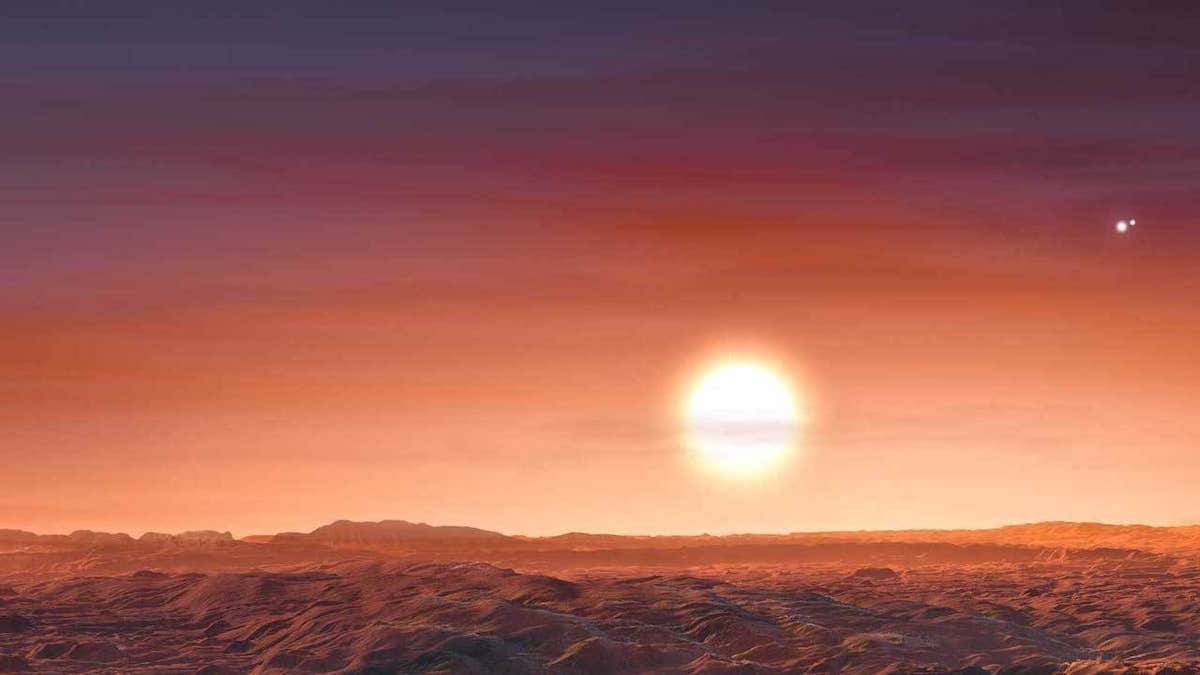Fox News Flash top entertainment headlines for May 29
Fox News Flash top entertainment and celebrity headlines are here. Check out what's clicking today in entertainment.
Scientists have confirmed the existence of the exoplanet Proxima b, a planet just 4.2 light-years from Earth. Given how close it is to its star, Proxima Centauri, it could have liquid water, and "therefore, harbor life."
Researchers said the confirmation of the planet's existence is an "important task," and were accurately able to indicate its mass – 1.17 times that of Earth – and its orbit, at 11.2 days around its host star.
"Confirming the existence of Proxima b was an important task, and it's one of the most interesting planets known in the solar neighborhood," Alejandro Suarez Mascareño, the study's lead author, said in a statement.

Artist's impression of Proxima b. (ESO/M. Kornmesser)
'ONE IN A MILLION' SUPER-EARTH DISCOVERED IN DEEP SPACE
The astronomers were able to accurately measure the exoplanet's mass and orbit thanks to ESPRESSO, a Swiss-made spectrograph on the Very Large Telescope in Chile.
Proxima b was first detected in 2016 using an older spectograph known as HARPS, but ESPRESSO's precision has proved invaluable, researchers note.
"We were already very happy with the performance of HARPS, which has been responsible for discovering hundreds of exoplanets over the last 17 years," Francesco Pepe, a professor in the Astronomy Department in UNIGE's Faculty of Science and the leader of ESPRESSO, added in the statement. "We're really pleased that ESPRESSO can produce even better measurements, and it's gratifying and just reward for the teamwork lasting nearly 10 years."
In January, researchers discovered the presence of a possible second exoplanet, a "Super-Earth," also orbiting Proxima Centauri, known as Proxima c.
Proxima c is likely not habitable, given its temperature, Mario Damasso, one of the astronomers who discovered the planet, told Fox News in January. However, it's possible Proxima b could have liquid water, given it receives "comparable" amounts of energy from its star that Earth receives from the sun.
It's just a question of whether the exoplanet has an atmosphere to help protect it from the X-rays that come from Proxima Centauri, researchers say.
"Is there an atmosphere that protects the planet from these deadly rays?" Christophe Lovis, a researcher in UNIGE's Astronomy Department and responsible for ESPRESSO's scientific performance and data processing, wondered. "And if this atmosphere exists, does it contain the chemical elements that promote the development of life (oxygen, for example)? How long have these favorable conditions existed?"
Lovis continued: "We're going to tackle all these questions, especially with the help of future instruments like the RISTRETTO spectrometer, which we're going to build specially to detect the light emitted by Proxima b, and HIRES, which will be installed on the future ELT 39 m giant telescope that the European Southern Observatory (ESO) is building in Chile."
The research has been published on the Arxiv repository and can be read here.









































